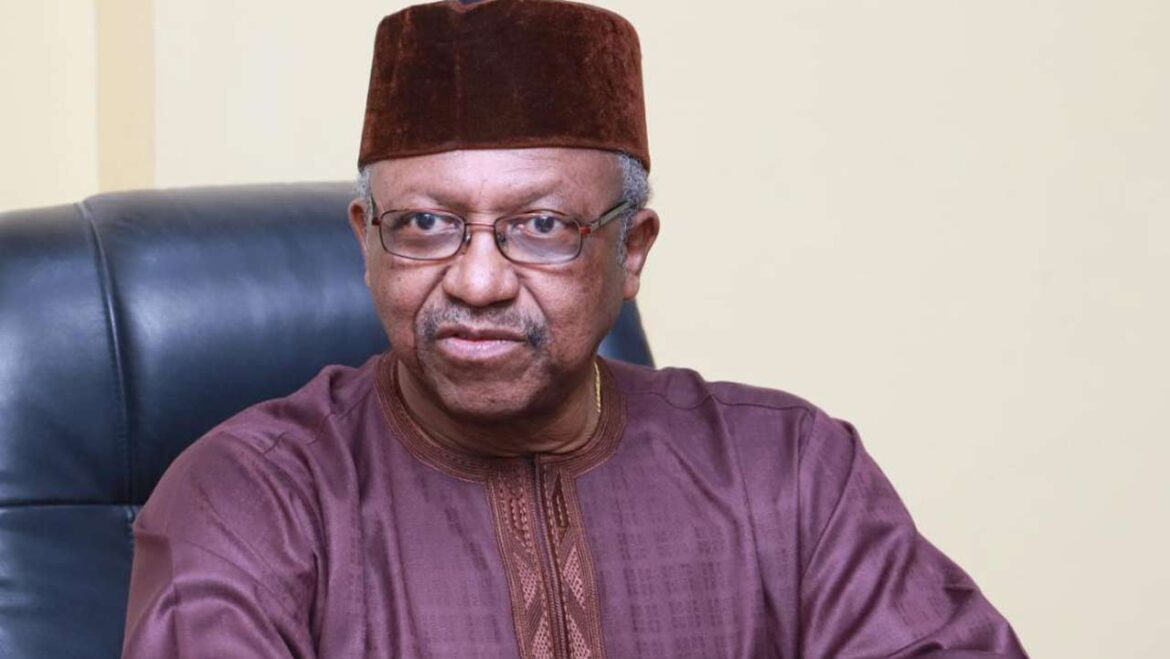By Haruna Gimba
The Nigeria’s Federal Government has called on the 36 states in the country to remove embargo on the employment of health workers, and to invest in hiring more health workers.
The Minister of Health, Dr Osagie Ehanire stated this at a ministerial briefing to commemorate the 2023 World Health Day and World Health Workers Week on Thursday in Abuja.
He said the embargo imposed by the state government is is a barrier to the country’s vision of achieving Universal Health Coverage and improved quality of healthcare.
“I call on all concerned to ensure that more frontline health workers are recruited than others to ensure the substantial reduction in shortage of health workers. The personnel budgets of health facilities should be spent on maintaining more numbers of frontline healthcare workers,” he said.
Dr Ehanire added that in order to continuously generate and maintain comprehensive data on Nigeria health workforce, the Federal Ministry of Health has embarked on the establishment of National Health Workforce Registry “which is a web-based information system that links healthcare workers to their respective health facilities.”
According to him, the registry will seamlessly help to disaggregate Health Care Workers’ information according to cadre, gender, location, age, specialty etc.
The minister said, “I am glad to inform you that the ministry has completed establishing registries in 25 states of the federation + FCT with support from partners and the data is being uploaded. Information from the registry in some states has been used to produce the state health workers’ profile and a bulletin.”
Speaking on the theme of the 2023 World Health Day “Health for All – Strengthening PHC to Build Resilient Systems,” and the theme of the World Health Workers Week “Investing in the Health Work Force. Health for all Strengthening PHC to Build Resilient System” Dr Ehanire stated that one of the key initiatives of President Muhammadu Buhari administration, to create a balanced health system by strengthening the PHC network in Nigeria, with increased investment in the National Primary Health Care Development Agency (NPHCDA) to foster the Primary healthcare Under One Roof (PHCUOR)
concept.
He stated that the idea being to integrate PHC activities of Federal, State and Local government, in one Authority, for synergy and to reduce fragmentation and waste of resources in management and delivery of PHC services. PHCUOR is based on “One Plan, Management and One Monitoring and Evaluation (M&E),” and, though still a work in progress, has strengthened the national health system.
Ehanire said, “The Basic Health Provision Fund (BHCPF) was established by the National Health Act (2014) to provide and finance essential health services that address our poor health indices at Primary Health centers, to poor and vulnerable citizens, especially in rural areas, on our path to a Universal Health Coverage.
“This Administration provided the first seed money for BHCPF from 1% of CRF of the Federation. It is to be augmented with funds from various sources, including State Government and Development partners, and managed by National Health Insurance Agency (NHIA), National Primary Health Care Development Agency (NHPHCDA) and Emergency Medical Treatment Committee.
“Funds are allocated directly to PHCs according to established guidelines, and supervised by the PHCUOR, who monitor performance and expenditure. States are required by the Act to contribute a counterpart fund of 25% to the fund.
“The BHCPF covers health services, including maternal and child health services, immunization and supports treatment for malaria, tuberculosis, and HIV/AIDS, and provides essential drugs and medical supplies, as well as upgrading primary healthcare facilities and recruitment and training of healthcare workers, with many other additions planned.
“BHCPF contributes greatly to reviving and improving the PHC system in Nigeria, and bridging critical gaps in our health system.”
The minister added that this year’s World Health Workers’ week is significant as it marks the 75th anniversary when countries of the world came together and founded the World Health Organization (WHO) to promote health keep the world safe and serve the vulnerable – so everyone everywhere can attain the highest level of health and well-being.
He congratulated the WHO on this 75th anniversary of active service to humanity and to thank WHO for supporting the entire health sector in Nigeria technically and financially these years.
Dr Ehanire also joined WHO Director General, Dr Tedros Ghebreyesus to call on OECD to respect the provisions in the WHO health workforce support and safeguard list, 2023 and at the same time call on the global leaders, donors, and multilateral leaders to allocate long-term sustainable funding and implement policies that protect and support health workers everywhere.




